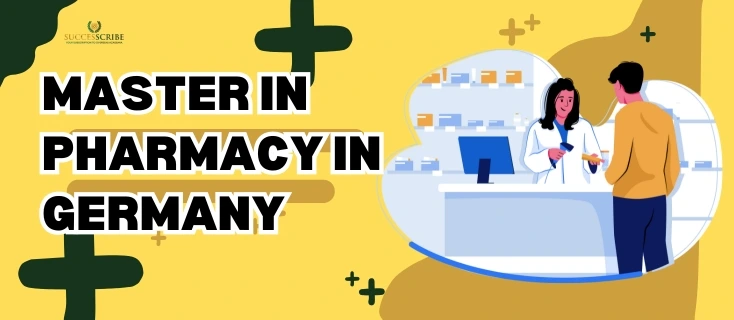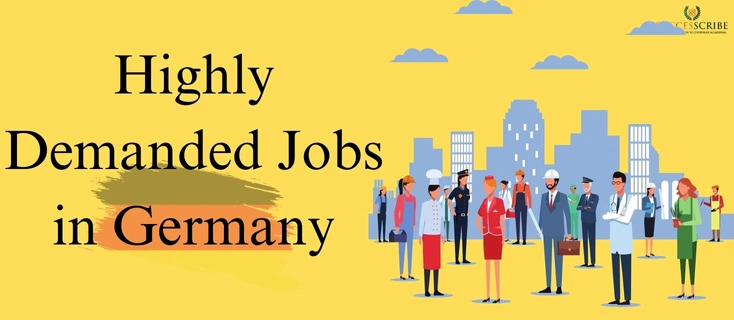Imagine standing at the intersection of science, healthcare, and innovation, where every discovery has the potential to transform lives. Welcome to Germany, a global leader in pharmaceutical education and innovation. What makes Germany truly unique for pharmacy students? It’s the perfect blend of tradition and innovation. From the historic lecture halls of Heidelberg University to the state-of-the-art laboratories of the Technical University of Munich, Germany’s universities provide a dynamic learning environment where theory meets practice. In this guide, we’ll explore everything you need to know about pursuing a Masters in Pharmacy in Germany.
Top Universities for Masters in Pharmacy in Germany
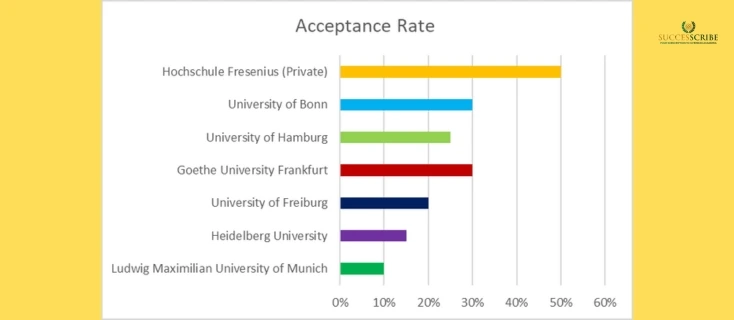
Here are some of the leading universities offering Master’s in Pharmacy or related pharmaceutical sciences programs:
| University Name | Program | Acceptance Rate |
| Ludwig Maximilian University of Munich | MSc in Pharmaceutical Sciences | 10% |
| Heidelberg University | MSc in Pharmacy | 15% |
| University of Freiburg | MSc in Pharmaceutical Sciences | 20% |
| Goethe University Frankfurt | MSc in Drug Research | 30% |
| University of Hamburg | MSc in Pharmaceutical and Biomedical Sciences | 25% |
| University of Bonn | MSc in Drug Regulatory Affairs | 30% |
| Hochschule Fresenius (Private) | MSc Medical and Pharmaceutical Biotechnology | 50% |
Acceptance Rate of German Universities for MPharm
The acceptance rate for Masters in Pharmacy in Germany (MPharm in Germany) varies depending on the university, competition level, and number of applicants. Here is an estimate of acceptance rates for different types of universities.
| University Type | Estimate Acceptance Rate |
| Public Universities | 10% – 30% (Highly Competitive) |
| Private Universities | 40% – 70% (Less Competitive) |
Why Study Masters in Pharmacy in Germany
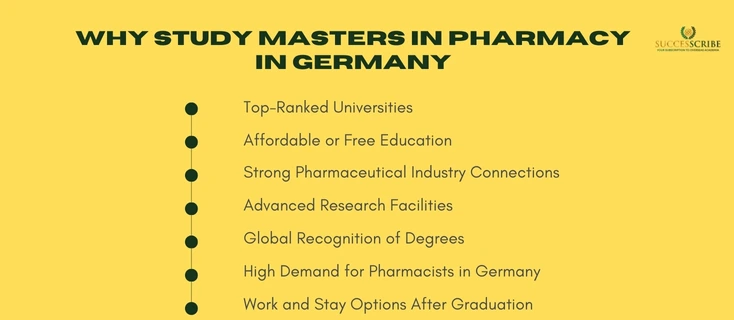
Germany is one of the best countries for studying pharmacy because of its high-quality education, strong pharmaceutical industry, and excellent research facilities. Here are the main reasons to choose Germany for an MPharm degree:
1. Top-Ranked Universities
- Germany has more than six universities ranked among the top 100 in the world for pharmacy (QS World University Rankings 2024).
- Some of the best universities include Ludwig Maximilian University of Munich (LMU), University of Freiburg, and Heidelberg University.
2. Affordable or Free Education
- Public universities offer tuition-free education for both EU and non-EU students, with only semester fees between €100–€350 per semester.
- Private universities charge €10,000 – €20,000 per year, which is still lower than in countries like the USA or UK.
3. Strong Pharmaceutical Industry Connections
Germany is home to some of the largest pharmaceutical companies in the world, including:
- Bayer – Annual revenue of €50 billion (2023).
- Merck – Employs over 64,000 people worldwide.
- Boehringer Ingelheim – One of the top 20 pharmaceutical companies globally.
These companies provide internships, research projects, and high-paying jobs for graduates.
4. Advanced Research Facilities
- Germany invests over €60 billion per year in research and development.
- Universities have modern labs for drug testing, biotechnology, and clinical pharmacy.
- Many universities work with research centers like the Max Planck Society and Fraunhofer Institute.
5. Global Recognition of Degrees
- A Master’s in Pharmacy from Germany is recognized by WHO, FIP (International Pharmaceutical Federation), and the European Union.
- German universities follow Good Manufacturing Practices (GMP) and Good Laboratory Practices (GLP), which improve job opportunities worldwide.
6. High Demand for Pharmacists in Germany
- Due to its aging population, Germany will need 50,000+ new healthcare professionals, including pharmacists, by 2030.
- The average salary for pharmacists in Germany ranges from €45,000 – €85,000 per year, with experienced professionals earning over €100,000 annually.
7. Work and Stay Options After Graduation
- After graduation, students get a 1.5-year (18 months) job search visa to find work in Germany.
- Once employed, graduates can apply for a Blue Card, which allows them to get permanent residency after 33 months
Eligibility Criteria for Masters in Pharmacy in Germany
To be eligible for a Master’s in Pharmacy in Germany, students must meet the following requirements:
- A bachelor’s degree in pharmacy, pharmaceutical sciences, or a related field.
- The degree must be recognized as equivalent to German university qualifications.
- For English-taught programs: IELTS (6.5-7.0) or TOEFL (90-100 iBT)
- For German-taught programs: TestDaF (Level 4-5), Goethe – B1 or higher level.
- A minimum GPA of 2.5 or higher on a 4.0 scale (varies by university
- Some programs may require relevant work or research experience in pharmaceutical sciences.
- Indian students applying for German universities must obtain APS (Academic Evaluation Centre) certification.
Application Process
Step 1: Choose the Right University and Program
- Research and shortlist universities that align with your academic and career goals.
Step 2: Check Admission Requirements
- Each university has specific eligibility criteria. Review the official university websites.
Step 3: Prepare Required Documents
- Academic transcripts and certificates
- English or German language proficiency test scores
- Letter of Motivation (SOP)
- Resume/CV
- Letters of Recommendation (LORs)
- Work experience certificates (if required)
Step 4: Apply via Uni-Assist or Directly to Universities
- Most international students apply through Uni-Assist or the university’s online portal.
Step 5: Attend Interviews (if applicable)
- Some universities may conduct online interviews before offering admission.
Step 6: Obtain a Student Visa
- Indian students must apply for a Germany student visa (Type D) and arrange financial proof (€11,208 in a blocked account) after receiving the admission letter.
Tuition Fees and Cost of Living for Masters in Pharmacy in Germany
Here are the tuition fees and cost of living when planning to study Masters in Pharmacy in Germany:
Tuition Fees
| University Type | Additional Inforamtion |
| Public Universities | Mostly free (only administrative fees of €150-€350 per semester) |
| Private Universities | €10,000 – €25,000 per year |
Cost of Living
On average, international students spend €1000 – €2000 per month on living expenses, including:
| Expense | Monthly Cost (€) |
| Rent (Shared Apartment) | €400 – €800 |
| Food | €200 – €400 |
| Transport | €50 – €100 |
| Medical Insurance | €120 – €150 |
| Miscellaneous | €150 – €300 |
Scholarships for Masters in Pharmacy in Germany
Several scholarships help international students finance their studies:
- DAAD Scholarships: Covers tuition, living expenses, and travel costs.
- Deutschlandstipendium: Provides €300 per month to talented students.
- Erasmus+ Scholarships: For students studying in European countries.
- Heinrich Böll Foundation Scholarships: Supports international students
Career Prospects After Masters in Pharmacy in Germany
The future of MPharm in Germany is bright, offering stable career options, global exposure, and long-term growth opportunities. Graduates can work in various roles in the pharmaceutical industry, hospitals, and research institutes.
Job Roles and Average Salaries
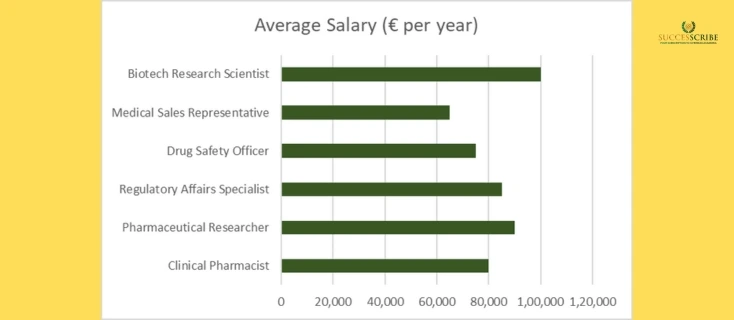
| Job Role | Average Salary (€ per year) |
| Clinical Pharmacist | 50,000 – 80,000 |
| Pharmaceutical Researcher | 60,000 – 90,000 |
| Regulatory Affairs Specialist | 55,000 – 85,000 |
| Drug Safety Officer | 50,000 – 75,000 |
| Medical Sales Representative | 40,000 – 65,000 |
| Biotech Research Scientist | 70,000 – 100,000 |
Work Visa and PR in Germany
After completing their master’s, students can apply for an 18-month post-study work visa. If employed, they can transition to a work visa and later apply for permanent residency (PR).
Course Duration and Structure – Masters in Pharmacy in Germany
A Master’s in Pharmacy (MPharm) in Germany usually takes 2 years (4 semesters) to complete. The course helps students learn about medicines, how they are made, tested, and used in hospitals and industries. It includes classroom lessons, lab work, and research projects.
Course Duration
| Program Type | Duration | Semester |
| Full-time Master’s in Pharmacy | 2 years | 4 semesters |
| Part-time Master’s in Pharmacy | 3 – 4 years | 6- 8 semesters |
| Research-based Master’s | 2 years | 4 semesters |
- Full-time programs are best for students who want to study full-time.
- Part-time programs allow students to study while working, but they take longer.
- Research-based programs focus more on experiments and projects.
Course Structure
The course has main subjects, optional subjects, lab work, and a final research project.
| Semester | Subjects You will study | What you will do |
| Semester 1 | Medicines & ChemistryHow Drugs Work in the BodyResearch Methods | Learn the basics of pharmacyDo lab experiments |
| Semester 2 | Medicines in HospitalsHow New Medicines Are MadeUse of Biotechnology in Pharmacy | Work on group projectsDo case studies |
| Semester 3 | Safety of MedicinesLaws About MedicinesHow Medicines Are Made in Factories | Visit pharmaceutical companiesWrite research papers |
| Semester 4 | Final Research ProjectInternship (Optional)Quality Testing of Medicines | Work on a research topicWrite and present a final thesis |
Core Modules in MPharm
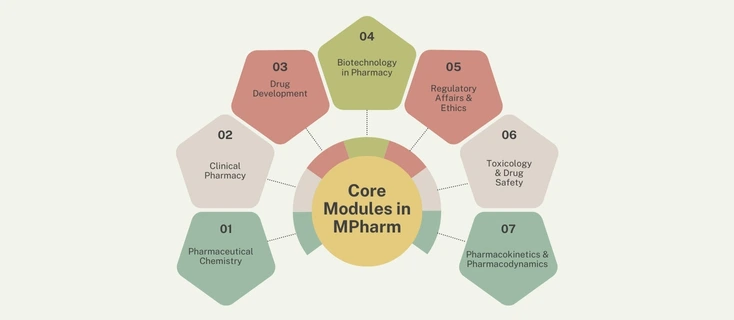
Here is the core module of the Masters in Pharmacy program in Germany:
| Subject | Description |
| Pharmaceutical Chemistry | Study of drug composition, synthesis, and analysis |
| Clinical Pharmacy | Application of pharmaceutical knowledge in hospitals and healthcare |
| Drug Development | Understanding the processes involved in creating new drugs. |
| Biotechnology in Pharmacy | Use of biotechnology in drug formulation and production. |
| Regulatory Affairs & Ethics | Compliance with national and international pharmaceutical regulations. |
| Toxicology & Drug Safety | Assessing drug safety, side effects, and regulatory requirements. |
| Pharmacokinetics & Pharmacodynamics | Study of drug absorption, distribution, metabolism, and action mechanisms. |
Important Subjects in MPharm
| Subject | What will you Learn |
| Medicinal Chemistry | How medicines are made and tested |
| Hospital Pharmacy | How medicines are given to patients in hospitals. |
| Drug Development | The process of making new medicines. |
| Pharmaceutical Biotechnology | How technology helps in making better medicines |
| Medicine Laws & Ethics | The rules and laws for selling medicines. |
| Safety & Side Effects | How medicines affect the body and possible risks. |
| How Drugs Work in the Body | How medicines move in the body and do their job. |
Specializations (Focus Area)
Individuals can choose a special area to study in detail
| Specialization | What it Focuses on |
| Hospital Pharmacy | How medicines are used in hospitals for patients. |
| Medicine Technology | How advanced methods improve medicine making |
| Industry Pharmacy | Large-scale production and testing of medicines |
| Drug Safety & Testing | Checking medicine safety and possible risks |
| Medicine Laws & Regulations | Rules and laws for medicine approvals |
Pharmacy Licensing Process in Germany
If you want to work as a licensed pharmacist in Germany after completing your Master’s in Pharmacy, you need to obtain the Approbation (Pharmacy License) from the German authorities. The licensing process ensures that pharmacists meet the professional and legal requirements to practice in Germany.
In Germany, a licensed pharmacist (Apotheker) can work in hospitals, community pharmacies, research institutions, and pharmaceutical industries. The Approbation is a mandatory license issued by the state authorities that allows you to practice as a pharmacist.
Requirements for Pharmacy Licensing in Germany
The requirements to apply for a pharmacy license in Germany depend on whether you obtained your pharmacy degree in Germany or abroad.
For Pharmacy Graduates from Germany:
- Completion of a state-approved pharmacy degree (Master’s or Staatsexamen in Pharmacy)
- 12 months of mandatory practical training (Pharmazeutisches Praktikum)
- Passing the Pharmaceutical State Examination (Dritte Pharmazeutische Prüfung)
- Proof of German language proficiency (at least B2 level).
For International Pharmacy Graduates (Non-EU & EU Applicants):
- Recognition of your foreign pharmacy degree in Germany
- Equivalency Check (Gleichwertigkeitsprüfung) to assess if your degree meets German standards
- Proof of pharmaceutical knowledge and practical training
- German language proficiency (B2 or C1 level depending on the state)
- Passing the Fachsprachprüfung (Professional Language Exam)
- Completing a knowledge test (Kenntnisprüfung), if required.
Conclusion
In conclusion, pursuing a Masters in Pharmacy in Germany is not just an academic journey it’s an opportunity to stand at the forefront of scientific discovery and healthcare innovation. By earning a Master’s in Pharmacy here, you gain a globally recognized degree, hands-on experience, and the chance to contribute to groundbreaking discoveries that improve lives worldwide.
FAQs
Do I need a license to work as a pharmacist in Germany after my Master’s?
Yes, to work as a licensed pharmacist in Germany, you must pass the Approbation (State Licensing Exam). If you are a non-EU student, you may also need to complete a Pharmaceutical Internship before obtaining full licensure.
What is the job market like for pharmacy graduates in Germany?
Germany has a strong pharmaceutical industry, offering excellent career opportunities.
1. Major employers include Bayer, Boehringer Ingelheim, Merck, Roche, and Novartis.
2. The average starting salary for pharmacy graduates is €45,000–€60,000 per year, increasing with experience.
What are the eligibility criteria for a Master’s in Pharmacy in Germany?
To apply for a Master’s in Pharmacy in Germany, you typically need:
1. A bachelor’s degree in pharmacy, pharmaceutical sciences, or a related field.
2. Proof of language proficiency (IELTS/TOEFL for English-taught programs or TestDaF/Goethe-Zertifikat for German-taught programs).
3. A minimum GPA of 2.5 or higher on a 4.0 scale (varies by university).
4. Relevant work or research experience (if required by the program).
5. APS certification for Indian students.
Can I apply for a Master’s in Pharmacy in Germany with a B.Pharm from India?
Yes, but your B.Pharm degree must be recognized by German universities.
What are the best universities for a Master’s in Pharmacy in Germany?
Some of the top universities offering a Master’s in Pharmacy in Germany include:
1. Ludwig Maximilian University of Munich (LMU)
2. Heidelberg University
3. Freie Universität Berlin
4. University of Freiburg
5. University of Bonn
Related Post
Software Engineering in Germany
Structural Engineering in Germany
Masters in Nanotechnology Engineering
Masters in Marine Engineering

